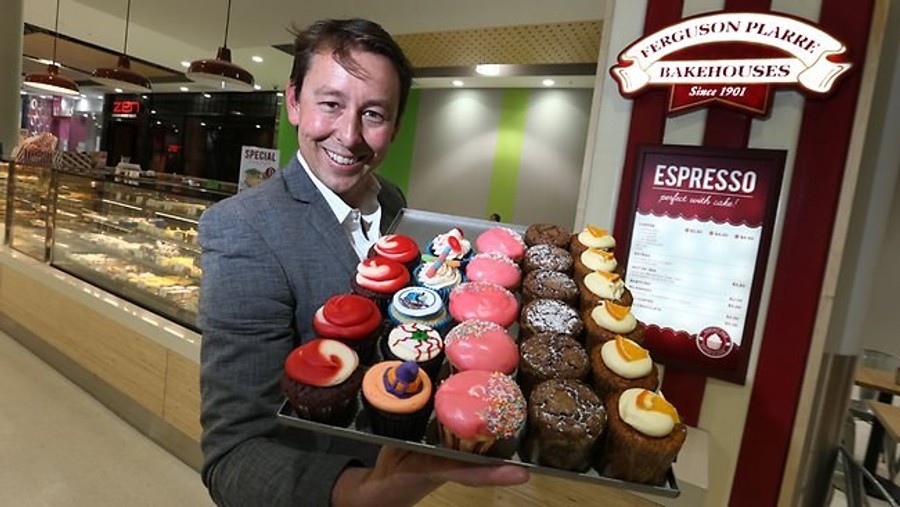Ideal ingredients for expansion for a bakery franchise

WHEN Steve Plarre was a teenager, he was invited to plenty of parties — as the son of a baker you could be relied on to turn up with boxes full of chocolate eclairs, cornish pasties and cakes fresh from the oven.
Plarre went on to join the family business, the fourth generation of bakers since his great-grandfather Otto Plarre arrived from Germany and set up a bakery in Melbourne in 1909.
Eight years earlier, in 1901, English-born Eliza Ferguson began making wedding cakes and pastries and with her husband, John “Percy” Ferguson, started a family business in the Melbourne suburb of Carlton.
The two families made it through the Depression, and also traded through two world wars. Despite being competitors, they would help each other out with supplies during food shortages.
“Australia was really young and new businesses more likely to help each other,” says Plarre, chief executive of Plarre Foods, which runs the Ferguson Plarre Bakehouses chain in Victoria and Puckles Family Bakehouse in Queensland.
There are 62 stores as part of this bakery franchise and there are ambitious plans to expand into NSW in coming months and grow to 250 sites in five years. That would have it nipping at the heels of the Michel’s Patisserie chain, which has 320 stores.
The Fergusons and Plarres gained a following and a reputation for quality and variety. Famous customers have included the Queen in 1963 and US president Lyndon Johnson in 1966.
In 1980, when the families had about 13 stores between them, the businesses were merged.
Running a family business — or, in this case, two family businesses — wasn’t always easy, and some family members thought their surname brought with it a degree of entitlement, says Plarre. Franchising the stores came about almost by accident. “We stumbled across it as a way to give jobs for some family members,” he says.
In 2007 a sustainable bakery was built with specialist materials and technology that has allowed the company to showcase its green credentials as well as save money on gas and electricity costs.
Last year succession planning was on the menu, resulting in the Plarre family buying out the Fergusons, ending the 32-year association. “The partnership with Fergusons had been a very good one,” says Plarre.
The shake-up to the business has meant changes for franchisees, including a much closer relationship with head office. “It is important to have franchisees buy in to any cultural change,” says Plarre. “When we spoke about our new vision for the business we shared with our franchisees that ‘we’re going to love you more than ever before but we’re also going to ask a lot more of you than ever before and if you don’t like it, that’s OK too, just put your hand up and we will do our very best to help you exit the business elegantly’.
“There was a bit of tough love.”
Since then franchisee satisfaction levels have soared, says Plarre. Moving into NSW is next on the agenda, with the first shop due to open within six months. The plan for more than 250 sites in five years hinges on the growth being sustainable.
“If we are not hitting targets, we hit pause,” he says. With the weight of five generations on his shoulders, Plarre doesn’t want to mess it up.
“One of the differences is we still make the product,” he says by way of explaining what sets their stores apart. Also, there’s a focus on fresh ingredients — such as real eggs for making custard, real cream, free-range chicken and hormone-free beef.
Research company Ten Thousand Feet will today release the results of its franchise awards; Ferguson Plarre Bakehouses will enter the top 10 at fourth place, out of more than 1000 franchises.
Story originally posted on The Australian.
